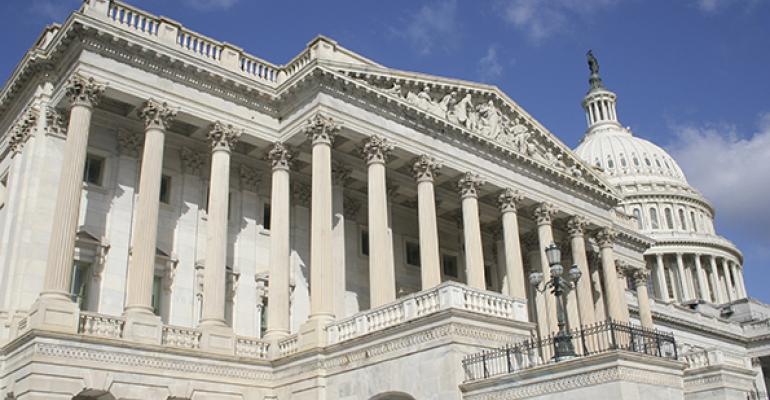In the final week before tax season ends, 69% of fee-based advisors believe that the majority of their clients will benefit from recent tax reform, according to the fifth-annual Advisor Authority Study commissioned by Nationwide Advisory Solutions.
That is a decline of 10 percentage points from the previous year’s survey.
Investors themselves are also uncertain how the 2017 Tax Cuts and Jobs Act will affect them; 53% believed they would benefit from tax reform in 2019, compared with 56% in the previous year. Ultra High Net Worth investors (categorized as $5 million or higher in household investable assets) reported one of the starkest shifts in perception, with 65% believing this year that they would benefit from tax reform, compared with 74% who said the same thing last year.
"When the 2017 Tax Cuts and Jobs Act was passed, the vast majority of RIAs and fee-based advisors anticipated clients' anxieties and began taking action,” Craig Hawley, head of Nationwide Advisory Solutions, said. “But as our latest Advisor Authority study shows, the benefits of tax reform were not as widespread as originally expected, and both advisors and investors continue to say that taxes are a top concern."
The Harris Poll conducted the survey on behalf of Nationwide from Feb. 25 to March 14; respondents included 1,021 financial advisors (507 registered investment advisors and 514 broker/dealers) and 824 investors. Among the investors, there were 205 Mass Affluent (household investable assets stood between $100,000 and $500,000), 205 Emerging High Net Worth ($500,000 to less than $1 million), 207 High Net Worth ($1 million to less than $5 million) and 207 Ultra High Net Worth (categorized as $5 million in assets or higher) investors.
The Tax Cuts and Jobs Act was passed by Congress and signed into law by President Donald Trump in December 2017, and the law’s popularity among voters remains mixed; a Pew Research Center poll released this week found that 36% of respondents approved of the tax law, with 49% disapproval. Additionally, an NBC/Wall Street Journal poll released today found that 17% of respondents believe they’re paying less under the reforms, compared to 28% who believe they are paying more, with the rest saying that they’re unsure or that their tax burden is similar to previous years (most households will see some tax relief this year).
This year’s filing season marks the first time many of the law's changes will be felt by taxpayers. Survey results showed that taxes have been a rising concern for clients of RIAs and fee-based advisors in recent years, rising from a number-six concern in 2016 to a number-two concern this year; it trailed only health care costs (though clients were equally as anxious about retirement costs and asset protection as they were about taxes, according to survey results).
Investors are not the only ones who believe they are less likely to benefit from tax reform; 68% of RIAs and fee-based advisors reported they believe they’re likely to benefit, a decrease of nine points from 2018, and eight out of 10 advisors expect the legislation will affect their business in some way. But many advisors remain optimistic about the law’s potential impact; 60% of RIAs and fee-based advisors said they expected tax reform will enable them to expand services and generate more business in the future. Advisors reported that the most likely ways the tax law will impact their business include generating retirement income (28%) and working on products or solutions they use with clients (22%). Adivsors expect fixed income ladders/bond ladders, variable annuities with living benefits and qualified longevity annunity contracts as some of the most likely ways advisors will boost retirement income for clients in the coming year.





